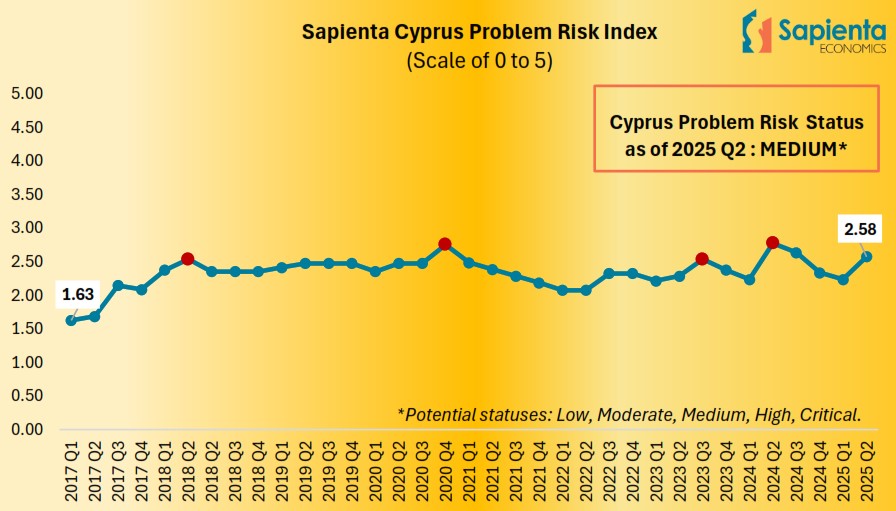The risk of an attack on the British bases in Cyprus because of the conflict between Israel and Iran, as well as cuts to UN mission budgets, have led to an increase in the quarterly Sapienta Cyprus Problem Risk Index.
On a scale of zero to five, where five is the most risky, the index for the second quarter of 2025 is back in the upper half of the “medium risk” status, with a score of 2.58, compared with 2.24 in the first quarter of the year.
Nevertheless, the index is still lower than in the same period of 2024, owing to relative stability in the UN-monitored buffer zone.
“The recent arrest of an alleged Iranian Revolutionary Guard member apparently spying on the British Sovereign Base Areas (SBAs), plus attempts by some countries to suggest that Cyprus or the British bases are involved in attacks on Iran, raise the risk of a direct attack on the island,” said the report’s author and Sapienta Economics Director Fiona Mullen.
“Cuts to UN budgets, both the peacemaking Good Offices Mission and the peacekeeping UNFICYP mission, also raise risks, given the UN’s important diplomacy role in quietly tempering inter-communal tensions.”
 The Risk Index has a category called “curveball” for unmodelled, high-risk events.
The Risk Index has a category called “curveball” for unmodelled, high-risk events.
“No model is perfect so the curveball risk captures new risks that can flare up or subside quickly, and which could de-stabilise relations between Greek Cypriots on the one hand and Turkish Cypriots and Turkey, or affect the risk of conflict more generally,” said Mullen. “The risk of an attack on the British Bases constitutes a curveball risk.”
The Sapienta Cyprus Problem Risk Index is compiled from ten overarching factors that influence the intensity of the Cyprus problem.
Each factor has a factual state-of-play that can change over time. States-of-play include, but are not limited to military activity in the UN-monitored buffer zone, in maritime areas offshore, Turkey’s external relations and the status of the UN and negotiations to solve the Cyprus problem.
The report on the latest index change is available at the Sapienta Economics website.










